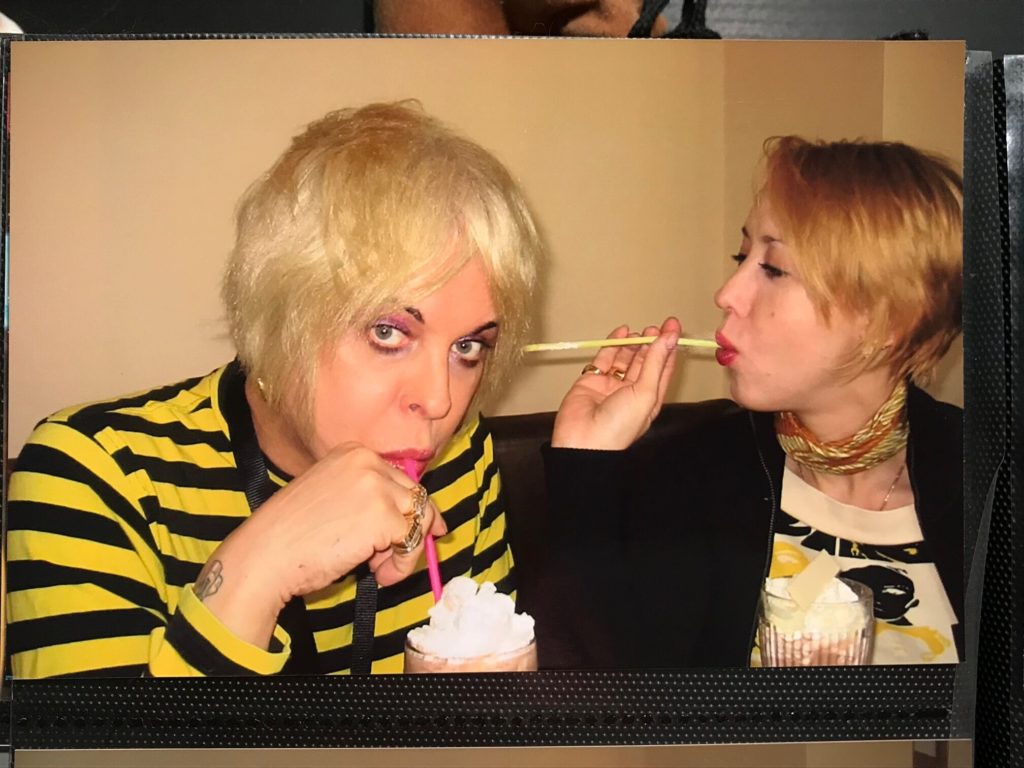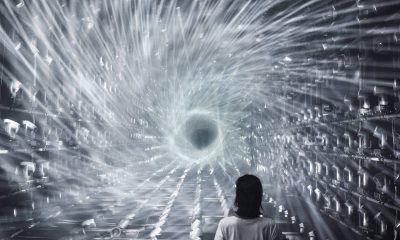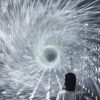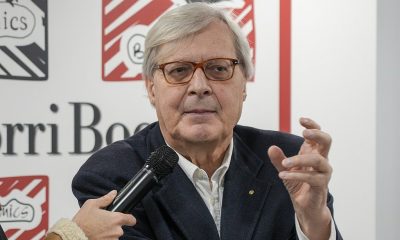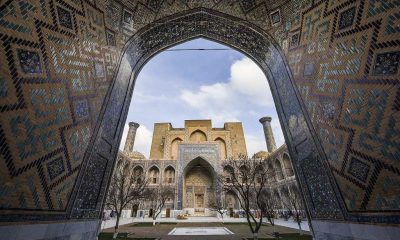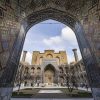ART WORLD NEWS
Genesis Breyer P-Orridge on Death, Plastic Surgery, and How Pandrogeny Can Save the World -ARTnews
Genesis Breyer P-Orridge and Lady Jaye. COURTESY GENESIS BREYER P-ORRIDGE
Genesis Breyer P-Orridge, the famed dissident artist and musician in bands such as Throbbing Gristle and Psychic TV, is getting h/er first solo show on the West Coast at the age of 69. The two-part show—to be presented at the Tom of Finland Foundation and Lethal Amounts Gallery starting October 23 under the title PANDROGENY I & II: An Outer Body Exhibition—will span h/er career from 1986, back when s/he worked with her partner Lady Jaye, who passed away in 2007. The couple famously declared that they had fused to become one collective being, and Genesis still refers to h/erself as “us” and “we.” Much of what will be on display in the upcoming exhibitions illustrates Breyer P-Orridge’s dedication to unity, which s/he has explored extensively through the concept of “pandrogeny.” Curious to learn more—and to check in after a recent health scare for which Breyer P-Orridge was hospitalized in the spring—ARTnews gave the occult artist a call.
With pandrogeny so integral to your art, how do you feel about gender in America. The government is getting more conservative about aspects of it, but society at large seems to be becoming more accepting. Do you get that sense? Pandrogeny as a concept is not about gender—it’s about the ending of all binary perception. It’s influenced by the allegory of the path of no distinction—that all definitions, distinctions, values, matters of what could be considered good, bad, delicious, or revolting are all human-made. They’re not innate. That’s true of identity, which includes gender. For for us it’s about erasing the need to even consider gender. We started writing about pandrogeny in 1978, but then we called it “panthropology.” We hadn’t had the word yet; we came to it in 1986. Obviously, for me personally, getting breast implants was a rejection of masculinity and the patriarchal society that I had been forced to live in since I was born. But for myself and Lady Jaye, it was about love. It was about becoming each other. It was about two individual beings reuniting into one unified divine being. That is the ultimate aim of pandrogeny. With everything going on in the world today, is that goal getting closer or farther away? I think we’re getting closer! That’s refreshing. A lot of people are pessimistic about the future these days. Well, first of all, William S. Burroughs used to say, “Don’t ever use the word the.” There isn’t the future—there’s a future, and for every single person that future is different. There are several billion futures that we can easily imagine, and then there’s the ones that we’ve not even expected or imagined yet. In any future of the species, this is inevitable. To me, pandrogeny was a statement of the inevitable. Myself and Lady Jaye, we looked around at what was happening around us, the sex ads in the Village Voice, which were biological women servicing heterosexual men, and then suddenly they were trans men but still servicing heterosexual men. There had been a massive erotic shift in the male libido. And before that was significant, Hollywood [stars] used to try to say they had never had any cosmetic surgery done. Now, suddenly, they’re boasting about how much they’ve gotten done. That was another signifier to us that there was a basic shift in the zeitgeist, and once that starts to happen as a species, we can’t turn back. What we’re seeing is the thrashing of the dinosaur’s tail just before it dies. I’m 70 years old in February, but all those people who are in control, the power-mongers, they’re all at the end of their time. They’ve only got 10 or 15 years left—then they’re gone. Then what? Revolution?A new generation will come up, and we’ll become evermore liberal, evermore tolerant, evermore able to comprehend the idea of pandrogeny—until it’s not even a discussion. In three generations, it’ll be a little dinosaur’s egg that we look at with curiosity. That’s not to say we’re not going to go through a really nasty time, though. COURTESY GENESIS BREYER P-ORRDIGE
What’s going to spring us forward? We’ve discovered that a lot of people are setting up small collectives and getting a big house and sharing it together, like the Ghost Ship that sadly burned. There’s a lot of projects like that happening, little communes and groups of people, like 10 or 15 of them just choosing to control how they do their personal life. Those examples inspire and encourage the next wave. It spreads like a little virus. It’s a very nice virus that is infecting the blood of the old overarching culture, which has to go. It’s prehistoric, and it’ll be outmaneuvered by simple evolution. People assume the human body is finished. It’s not. It’s still going through evolution. And it’s very possible that this is a moment we will realize was one of those mutations. Evolution can be very slow, but there can be subtle mutations that change things much more rapidly. Our belief is that pandrogenyy is a word that we use to imply that that evolution is taking place. We are optimistic, aren’t we? At a talk recently about the “anti-museum,” you said at one point that you had “never been to the fucking Whitney.” Is that still true? I’ve still never been! [Laughs.] I’m not really interested. Why would I want to go there and see a load of stuff that’s been trapped and put in cages like animals. Why would I want to see that? I want to see what’s dynamic and what’s happening now. What are people doing now, and what are they going to do to reject me? I have to be thrown out, too. Culture is something that’s alive. It’s spiritual as much as it’s creative and aesthetic. It’s about discovering the self through each and every person. I’m probably closer to living this than most people who have said it: art and the self are inseparable. There is no separation. You have had problems of late with your health. How are you now? Well, I have cancer. For the past two months they’ve started to put me on intravenous chemo because my bloodwork was getting worse, so I’m on that. But they also did surgery on my heart and lungs, which was miserable. I was in agony and two more months healing. My body is dying. Is that a scary feeling? You seem to be pretty at peace. What can you do? I love being here, but I know I can’t stay forever. I would if I could, because it’s fascinating Being alive is fascinating! Having senses is wonderful. To be able to touch anything—what an amazing feeling that is.



